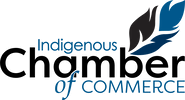by ICC Staff

Access to high-quality data is essential for designing effective public policy. For Indigenous communities, good data collection enables governments, organizations, and Indigenous leaders to better understand the realities on the ground and respond with targeted solutions. A dearth of reliable data leaves policymakers relying on assumptions rather than evidence, which can lead to misinformed decisions and ineffective results.
Economists, statisticians, policy analysts, and other professionals rely heavily on accurate information to analyze the social, economic, and health outcomes of the communities they research. In Indigenous communities, this data can help reveal systemic barriers, track the success of programs, and identify areas that require further investment or reform. For instance, clear and reliable data on graduation rates, employment levels, or housing conditions can help direct funding to the communities most in need.
Equally important, good data collection allows for fair comparisons between Indigenous and non-Indigenous communities. Without standardized and consistent data, it becomes difficult to measure disparities or progress over time. This can result in a lack of accountability and prevent communities from advocating effectively for change.
Respecting Privacy and Community Control in Data Collection
Often, however, reliable data on Indigenous communities can be scarce. This can be attributed, in part, to a lack of funding for data collection initiatives but also due to legitimate privacy concerns many communities have with respect to data collection and management.
For this reason, data collection efforts, should they proceed, must be designed with utmost sensitivity and in consultation with the community members they concern. One of the key concerns raised by Indigenous communities is the issue of privacy.
Data sovereignty, the right of Indigenous peoples to govern the collection, ownership, and application of their data, is a growing movement that calls for ethical standards and community control in all research efforts. Ensuring privacy, cultural sensitivity, and informed consent is vital for building trust and encouraging participation in data-gathering initiatives.
Creating Employment Opportunities Through Indigenous Data Expertise
In addition to the importance of data collection for research purposes, improved data collection can also create new opportunities for Indigenous peoples in employment. With increased demand for accurate and relevant data, there is a growing need for Indigenous data collectors, analysts, researchers, and statisticians.
These roles not only support community development but also offer high-quality employment opportunities within the knowledge economy. By training and hiring Indigenous professionals in these fields, communities can take greater ownership over the information that shapes their futures.
High-quality data collection is not merely a technical exercise, but an important part in furthering Indigenous economic development. When done properly, it enables policymakers and Indigenous communities to collaborate on issues and improve local outcomes.
Join Our Newsletter
As Manitoba's voice for Indigenous business and your partner in economic reconciliation, we connect you to opportunities that drive change. Subscribe to receive updates on Indigenous business developments, partnership opportunities, and upcoming events delivered straight to your inbox.



